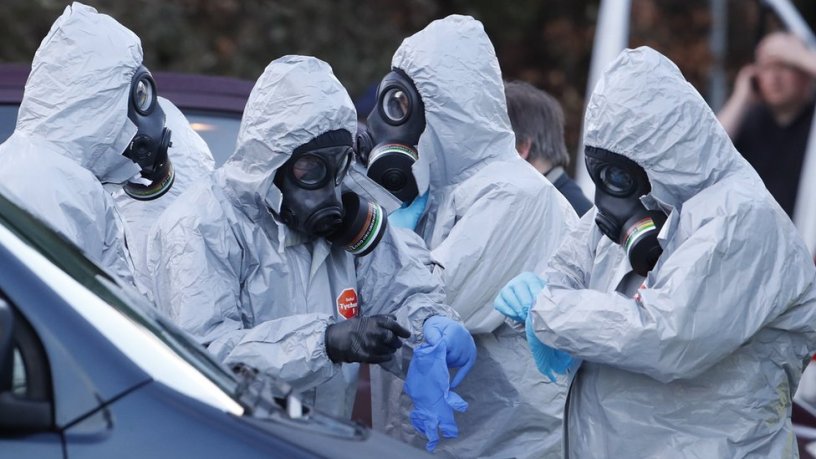The nerve agent attack
March 10, 2018 | Expert Insights

Britain has deployed 180 troops to the city where a former Russian spy was attacked by a nerve agent. The attack has worsened ties between UK and Russia considerably.
Background
Ties between UK and Russia can be traced back nearly five centuries. The Russians and British were allies against Napoleon, and enemies in the Crimean War of the 1850s. They were rivals again during the Great Game for control of central Asia in the late 19th century. They were allies again in World Wars I and II, although relations were strained by the Russian Revolution of 1917. During the Cold War, the UK remained a strong ally for the United States and relations with the Soviet Union was fraught. The end of the Cold War also established better ties between the two nations.
Since 2014, the ties between Russia and the UK have turned hostile. The British government took the lead, with France and Germany, in imposing punitive sanctions by the EU against Russia for what Prime Minister David Cameron denounced as Russia's seizure of Crimea and support for separatists in Ukraine. Further sanctions followed after the destruction of Malaysia Airlines Flight 17 over rebel territory. Russia warned against reopening the Cold War and responded by partially cutting trade with the EU.
In March 2017, Sergei Viktorovich Skripal, a former Russian military intelligence officer turned spy for Britain′s intelligence services, was attacked. He and his daughter were found unconscious after falling victims to a poison attack. It was later revealed that they were attacked by a nerve agent.
Nerve agent:
Nerve agents are a class of organic chemicals that disrupt the mechanisms by which nerves transfer messages to organs. Poisoning by a nerve agent leads to contraction of pupils, profuse salivation, convulsions, involuntary urination and defecation, with first symptoms appearing seconds after exposure. "Nerve agents are possibly some of the most dangerous things that humans have ever made, after the atom bomb," says Dr. David Caldicott, clinical senior lecturer at the Faculty of Medicine at the Australian National University. Sarin is a well known nerve agent.
Analysis
Skripal and his daughter, Yulia were poisoned and both were hospitalized while critically ill. In addition, three police officers who responded to the crime scene also required treatment for breathing difficulties.
The UK government has since taken a tough stance and warned Russia that if the attack was linked to the Kremlin, the government would respond accordingly. UK Home Secretary Amber Rudd has noted that UK will only make an accusation against the Kremlin with sufficient evidence, stating, “If we move to attribution then we need to make sure we have all the details of what happened along the way so that we can be absolutely clear about it.” Skripal meanwhile has told British investigators that he fears that his family may also be at risk after these attacks. He and his daughter remain in critical condition. The Kremlin has maintained that it had nothing to do with the attacks.
As the investigation continues, Britain has deployed 180 troops to the city where the attack took place, officials announced recently. Gavin Williamson, the defence secretary, said “Our armed forces have stepped up to support the police in their investigation in Salisbury, building on the vital expertise and information already provided by our world-renowned scientists from the Defence Science and Technology Laboratory at Porton Down. We have the right people with the right skills to assist with this crucial inquiry. This is a dreadful incident and my thoughts remain with the victims and their families.”
Some have drawn parallels between this attack and the death of Alexander Litvinenko a KGB agent. He had been a vocal critic of Russian President Vladimir Putin and died in London in 2006, after he drank some green tea. It had been laced with radioactive polonium-210.
Assessment
Our assessment is that the use of nerve agents has proved to be fatal in the past. The half-brother of North Korean President Kim Jong-un was killed by a nerve agent in an attack in Malaysia last year. He died in less than 20 minutes. If links to Kremlin are proved, then the UK could potentially consider this an attack on its citizens and its sovereignty.
Read more: UK’s response to nerve agent attack








Comments